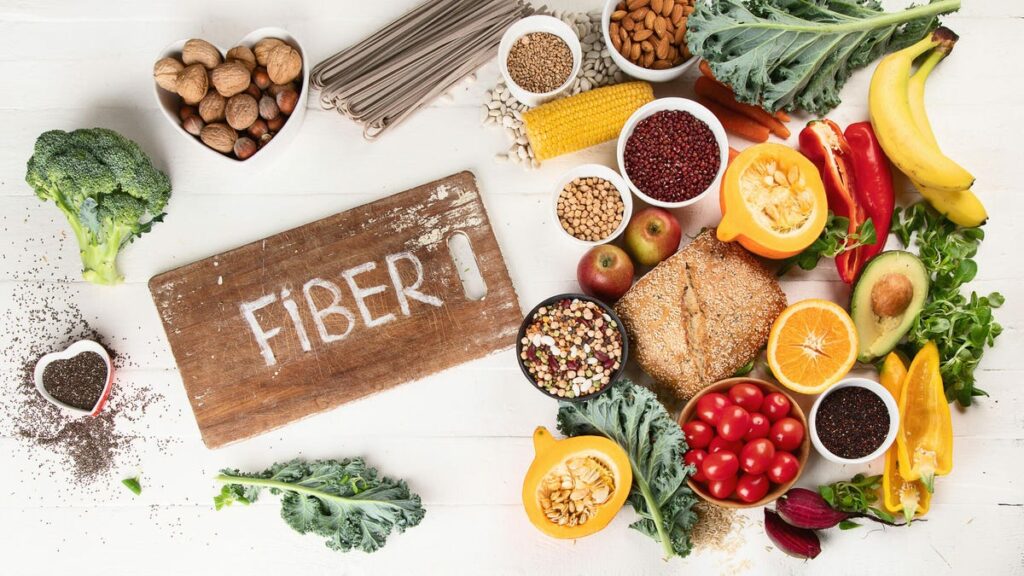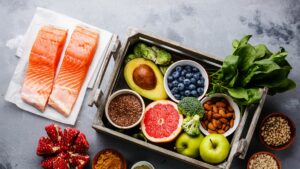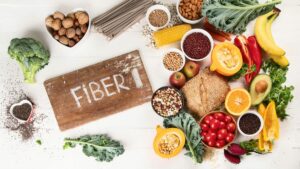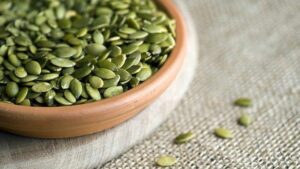Food dietary fiber is found in beans, lentils, broccoli, berries, avocados, popcorn, whole grains, apples, and dried fruits. These foods are high in fiber and can easily be incorporated into your diet to promote digestive health, regular bowel movements, and prevent diseases such as diabetes, heart disease, and bowel cancer.
To increase the fiber in your diet, have a fiber-rich breakfast, add seeds to your meals, eat more beans and vegetables, choose whole grain bread and brown rice, and consume potatoes with the skin. Including these high-fiber foods in your daily meals can help improve cholesterol and blood sugar levels and keep you feeling fuller for longer.
Table of Contents
The Importance Of Dietary Fiber
What is dietary fiber and why is it important for your health?
The role of fiber in digestive health and regular bowel movements:
- Dietary fiber is important for our digestive health and regular bowel movements.
- Fiber helps you feel fuller for longer.
- Fiber can improve cholesterol and blood sugar levels.
- Fiber can assist in preventing diseases such as diabetes, heart disease, and bowel cancer.
How fiber can help in improving cholesterol and blood sugar levels:
- Fiber helps to lower cholesterol levels by binding to cholesterol in the intestines and eliminating it from the body.
- Fiber slows down the absorption of sugar, helping to stabilize blood sugar levels.
Preventing diseases such as diabetes, heart disease, and bowel cancer with a fiber-rich diet:
- A fiber-rich diet can help reduce the risk of developing diabetes by improving blood sugar control.
- High fiber intake has been associated with a decreased risk of heart disease.
- Fiber can help prevent bowel cancer by promoting regular bowel movements and keeping the digestive system healthy.
High-fiber Foods To Include In Your Diet
|
High-Fiber Foods to Include in Your Diet
Beans: A versatile and easy way to incorporate fiber into your meals. Broccoli: The fiber-rich vegetable often overlooked for its nutritional value. Berries: Delicious and fiber-packed, adding sweetness to your diet. Avocados: A nutritious and fiber-rich fruit with numerous health benefits. Popcorn: A surprisingly healthy and satisfying snack choice for fiber intake. Whole Grains: Including whole-wheat bread, pasta, and brown rice for added fiber. Apples: A crunchy and fiber-dense fruit that keeps the doctor away. Dried Fruits: A convenient and concentrated source of fiber for on-the-go snacking. |
Tips For Increasing Dietary Fiber Intake
| Start your day with a fiber-rich breakfast |
| Incorporate various seeds into your meals and snacks |
| Include more beans and legumes in your diet |
| Make vegetables a regular part of your meals |
| Enjoy a variety of fruits for added fiber content |
| Opt for whole-grain bread and pasta options |
| Don’t peel off the skin of potatoes for extra fiber |
| Try replacing white rice with brown rice or pasta for higher fiber content |
To increase your dietary fiber intake, start your day with a fiber-rich breakfast. Incorporate various seeds into your meals and snacks. Include more beans and legumes in your diet. Make vegetables a regular part of your meals. Enjoy a variety of fruits for added fiber content. Opt for whole-grain bread and pasta options. Don’t peel off the skin of potatoes for extra fiber. Try replacing white rice with brown rice or pasta for higher fiber content.
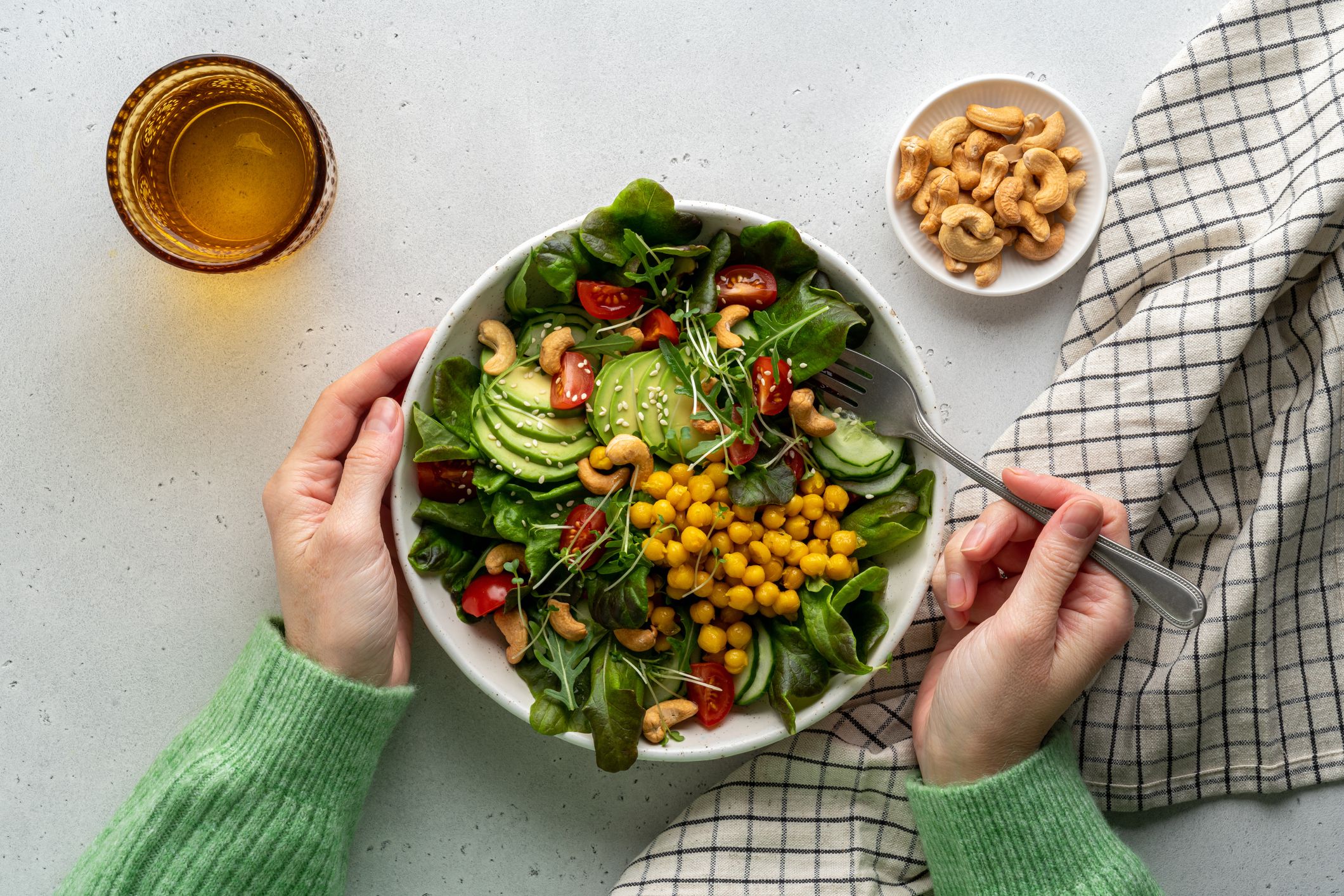
Credit: www.runnersworld.com
Frequently Asked Questions On Food Dietary Fiber
What Foods Are High In Dietary Fiber?
Beans, broccoli, berries, avocados, popcorn, whole grains, apples, and dried fruits are high in dietary fiber. Increase fiber intake by having breakfast, adding seeds, eating beans, vegetables, and fruits, choosing whole-grain bread, and including potatoes with the skins. Dietary fiber is important for digestion, bowel movements, feeling fuller, improving cholesterol and blood sugar levels, and preventing diseases like diabetes, heart disease, and bowel cancer.
Sources of soluble fiber include oats, peas, beans, apples, citrus fruits, carrots, barley, and psyllium. Insoluble fiber promotes movement in the digestive system and can be found in lentils, split peas, black beans, pinto beans, artichoke hearts, kidney beans, chickpeas, and chia seeds.
Additional sources of dietary fiber are found in cereals, fruits, and vegetables.
What Are 10 Foods That Are High In Fiber?
Here are 10 high-fiber foods: 1. Beans: Think three-bean salad, bean burritos, chili, soup. 2. Whole grains: Choose whole-wheat bread, pasta, and brown rice. 3. Popcorn: It’s a great source of fiber. 4. Nuts: Enjoy a handful of nuts for a fiber boost.
5. Berries: Add berries to your yogurt or smoothie for extra fiber. 6. Bran cereal: Start your day with a high-fiber cereal. 7. Lentils: Incorporate lentils into soups, stews, and salads. 8. Artichoke hearts: Include artichoke hearts in your salads or as a side dish.
9. Chia seeds: Sprinkle chia seeds into your meals for added fiber. 10. Vegetables: Add more vegetables to your meals to increase your fiber intake.
How Can I Increase Fibre In My Diet?
To increase fiber in your diet, follow these tips: 1. Have breakfast with high-fiber foods. 2. Incorporate seeds into your meals. 3. Eat more beans. 4. Include vegetables in your diet. 5. Enjoy fruits regularly. 6. Opt for wholegrain bread, rice, or pasta.
7. Keep potato skins on when eating. 8. Try brown rice or pasta for added fiber.
Why Does Your Body Need Dietary Fibre?
Dietary fiber is important for digestive health, regular bowel movements, feeling fuller for longer, and improving cholesterol and blood sugar levels. It can also help prevent diseases like diabetes, heart disease, and bowel cancer. Increase fiber in your diet by having breakfast, adding seeds, eating beans, vegetables, fruit, wholegrain bread, potatoes with the skin, and brown rice or pasta.
Conclusion
Including high-fiber foods in your diet is essential for your digestive health, as well as preventing diseases like diabetes, heart disease, and bowel cancer. You can easily increase your fiber intake by incorporating foods such as beans, whole grains, berries, and vegetables into your meals.
Remember to have a fiber-rich breakfast, add seeds to your dishes, and choose whole-grain options whenever possible. By making these simple changes, you’ll be well on your way to a healthier lifestyle.


